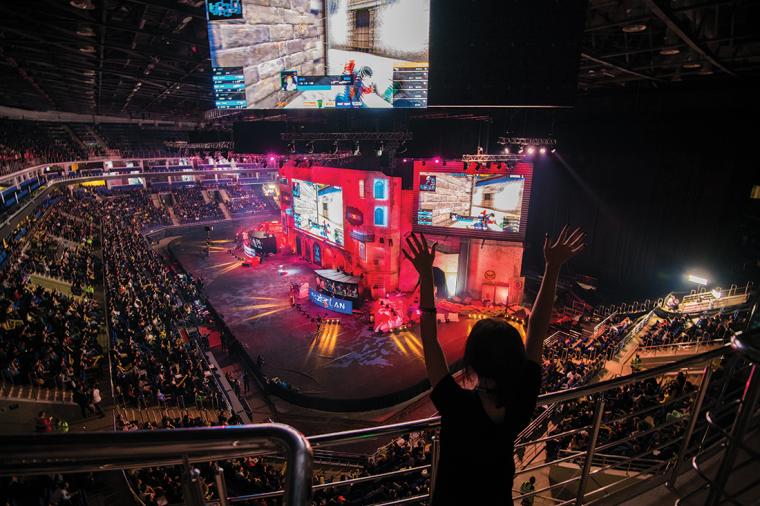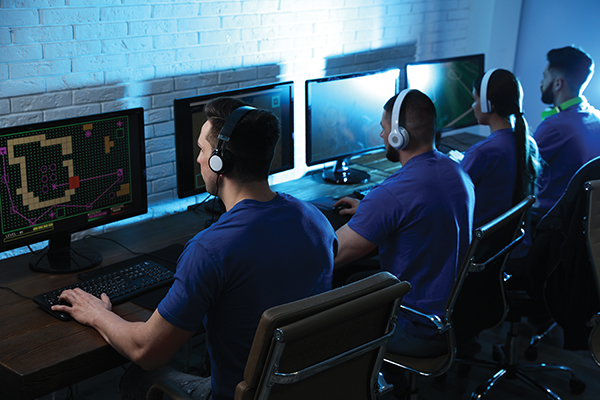

The National Association of Collegiate Esports (NACE) is the largest association of varsity college esports in North America. The organization also oversees operations and competition for NACE Starleague, North America’s largest collegiate league with nearly 700 colleges and over 13,000 students, as it advances the competitive experience for student-athletes and provides them with an ideal place to showcase their skills.
Sports Destination Management: How many colleges currently have membership in NACE?
Michael Brooks: NACE currently has 230 full members of the association, three association members of the association and a total of 615 institutions competing in our NACE Starleague. We are a growing association; when we started in July 2016, we had six members (this also was the total number of institutions with varsity programs in the USA).
SDM: Do you hear of any increases in gaming programs/clubs/competitions at the high school level?
Brooks: High school esports has been an area that has had a flurry of activity the last couple of years. Many state high school athletics and activities associations have adopted esports into their official programming with Playfly Esports, Generation Esports, PlayVS, Interstate Scholastic Esports Alliance and the North American Scholastic Esports Federation representing the major entities working in North American high school esports.
SDM: Have there been any esports combines?
Brooks: Absolutely! NACE announced recently that we were partnering with Stay Plugged In to provide esports combines throughout the year for prospective students looking to being recruited to play in college. Outside of this announcement, we’ve seen many of our member institutions hosting on-campus esports camps and combines. The majority of esports combines to date are being led by individual campuses or groups of local institutions.
SDM: Do you see more colleges offering scholarships help to students who want to game competitively?
Brooks: More institutions are starting varsity esports program, existing varsity programs are expanding their rosters and new esports are being added every year. Each one of those elements naturally leads to an increase in tuition support and esports is leading the charge.
SDM: Do you believe the gaming industry is growing in terms of jobs available?
Brooks: The gaming industry is already incredibly large. Today it is bigger than the music and movie industries combined. Demographic changes in terms of people’s interests have already skewed to gaming with studies all pointing to youth in the U.S. shifting their interests to gaming as the most common pastime amongst all interests. This population size is what is driving more and more business into esports and that naturally drives jobs.
SDM: Are you aware of any programs at the college level that teach students to manage esports events?
Brooks: Yes, there are quite a few institutions that have started esports related majors, minors and certificate programs. Shenandoah University, Boise State University, Oklahoma State University, Full Sail University and University of Arizona are just a few I can think of off the top of my head.
SDM: There seems to be much more mainstream awareness of gaming. To what do you attribute that?

Brooks: Two main items had an impact on raising the visibility of esports to the mainstream. First is the fans and competitors who have organized themselves into a powerful force making it known to their friends, neighbors and colleagues. Everything else around esports really found its starting point from the fans. Almost all people who are passionate about something are interested in sharing that passion with others. The other driving force was COVID-19. When most activities were shut down due to the restrictions that initially came with the outbreak of COVID-19, really one of the few things that was able to continue (and thrive) was esports. All of a sudden, major entertainment groups were knocking on the door of esports to generate the content that they needed.
SDM: There has been talk of gaming in the Olympics. Do you think it will happen?
Brooks: Absolutely; in a very short period of time (considering how long we’ve had the Olympics), we’ve seen the IOC go from saying that they would never include esports in the Olympics to now launching the Olympic Virtual Series (OSV) – their first Olympic-licensed esports events. SDM

